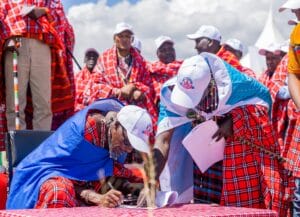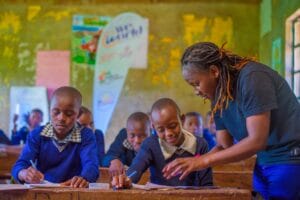
From Bologna the good practices to build the educating community.
The roundtable “GLOBAL CITIZENSHIP EDUCATION AND CIVIC EDUCATION IN THE BOLOGNA AREA – From the national guidelines to the educational community needs”, organized on the 25th of February by WeWorld in collaboration with the City of Bologna and the local partners of the projects MigratED and On the march with the climate to celebrate the World Day of Social Justice, was a significant opportunity to deepen the debate on the local implementation of the Italian Strategy for Global Citizenship Education, in particular in the Bologna territory.
The roundtable has proposed to promote in the territory an educating community able to show the connection between public and private sphere, formal and non-formal education, profit and non-profit, and to be a spokesman of fundamental rights, intercultural dialogue and sustainable development values.
AS part of the national advocacy action carried out by WeWorld within the MigratED project, two policy briefs were developed, with the contribution of ASviS and INDIRE. Those documents have placed and strengthened the contents of the roundtable: the first one, released in November 2020, analyzes the state of the art of the Italian Strategy for Global Citizenship Education by identifying good practices, major challenges and key actors as well as carrying out solutions and proposals for local and national policymakers. The second policy brief, released in January 2020, describes the innovations introduced by the law 92/2019 Introduction of the compulsory teaching of civic education, but also the difficulties related to its local implementation.
The event has aimed to create an opportunity for discussion on issues related to ECG and Civic Education among different stakeholders, both institutional and from civil society, which operate at national and local level, in order to analyze the coherence among the national guidelines, good practices and educational needs in the Bologna territory. Alessandro Vienna, Ministry of Education and Serena Haass Spithover, Italian Agency for International Cooperation, participated in the roundtable to illustrate the state of the art in the national scene, respectively talking about the law 92/2019 on Civic Education and the National Strategy for ECG. The opening words of Susanna Zaccaria, Councillor for Education and School for the City of Bologna were essential in order to analyze the needs and the good practices within the Bologna territory.
Fundamental was the presence of the representatives of the local educational institutions that with their precious perspectives help to create dialogue and networks able to activate teaching and social innovation, like those of Teresa D’Aguanno, school principal and representative of the ASA.BO Association Autonomous School of the Bologna province, and of the professor Cinzia Albanesi, coordinator of the CLM Educational and Community Psychology of the Bologna University. In closing, Anna Tancredi e Giuseppina Rita Jose Mangione, researchers at INDIRE: for the active role of INDIRE in the promotion of the educating community the support to the Ministry of Education for the implementation of law 92/2019, makes it the most suitable subject to create the logic and methodologic link between the national strategies and law and the application of good educational practices at local level.
With a view to creating a wider multi-stakeholder discussion, the roundtable marks the beginning of a sharing strategy that has seen as next step meetings on Global Citizenship Education organized in March 2021 by the Municipality of Milan, ACRA Foundation, Institute Oikos Onlus and by the associations ASPEm, CELIM and CoLomba.
Within MigratED, the advocacy action of WeWorld will have further continuation at the European level on April 6th and 7th on the occasion of the final international conference of the project. The event will be an opportunity to enhance debate and confrontation not only the processes of coordination of GCE action but also other complex topics as inclusive education, social inclusion, and digital education. Starting from the national advocacy actions carried out in the 5 partner countries (in addition to Italy, Greece, Cyprus, Portugal, and Slovenia), the final conference aims to advance these issues at the international level, always in the perspective of multi-stakeholder dialogue among institutions, NGOs, experts, educational actors at all levels.
To read the policy brief please visit the Publications section of WeWorld website:



